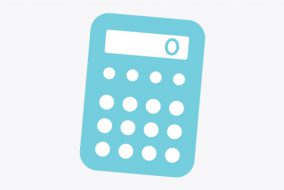Losing a loved one is a difficult life event, but having financial conversations in advance can help ease some of the stress.
You will need to know where to find relevant documents, such as wills and statements of assets and liabilities, when the time comes. Find out whether your loved one has a lawyer or accountant and who your loved one has chosen as executor(s).
There are many steps that you, or the executor(s), will need to take to deal with the estate of your loved one.
Before starting, it is wise to consult with a lawyer to ensure you are aware of any important legal considerations. For example, you will need to consider whether the Will should be probated, based upon the size and nature of the assets that need to be dealt with.
Here are some key steps that an executor needs to take to deal with estate matters:
- Obtain multiple death certificates from the funeral home. An original death certificate will be needed to complete many of the steps listed below.
- If there is a property involved, contact the insurance company and ensure appropriate coverage is in place. Utility and tax bills related to the property will need to be re-routed to the executor until the property is sold or transferred to the named beneficiary.
- Apply for death benefits under the Canada Pension Plan (CPP) or Quebec Pension Plan (such as a CPP death benefit, children’s benefits, or the survivor’s pension).
- Contact the beneficiary or beneficiaries that are named in the will to let them know about the death and to arrange for them to receive their share of the estate once financial matters have been settled.
- Ensure that debts have been paid.
- Submit a claim for the proceeds of life insurance contracts or policies. Policies may be through a direct life insurance policy or through current or past employers, credit cards, alumni associations or any other organizations that the person belonged to. It is important to understand that the estate may not be entitled to the insurance proceeds if there was a beneficiary named on the policy.
- Contact bank(s) and other financial institutions to make appropriate arrangements. Financial products that might need to be addressed include registered savings plans, savings and chequing accounts, mortgage, loans, lines of credit and investment accounts. You might need to set up a new account to manage the estate assets and transactions.
- Check whether the person has pension benefits with a current or past employer to find out if the estate is eligible for a death benefit or residual payment from the pension.
- Cancel or transfer credit cards, auto insurance coverage, and so forth.
- Prepare and file the final income tax return. Tax returns will also be required for the estate. You may want to consult with a tax professional to help prepare the necessary tax returns and assist in obtaining the necessary clearance certificates.
Find out more about what to expect as an estate representative on the Government of Canada website.
If you receive money through the estate, revisit your financial situation when you are ready and make any needed adjustments to your financial planning and investments.






















